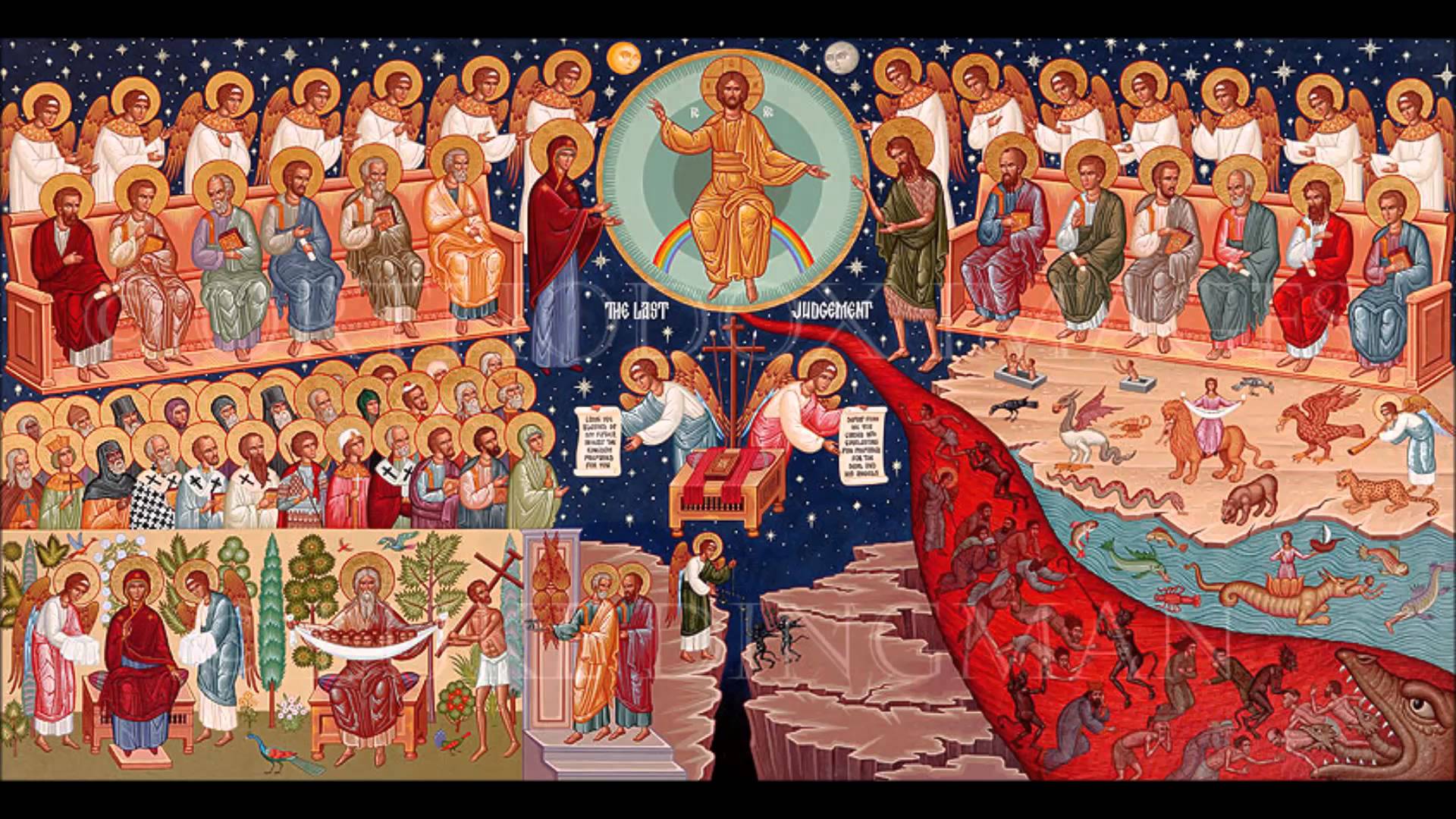In the sacred tradition of the Marcionite Church, we affirm that the love, mercy, and justice of the Heavenly Father are not compatible with the eternal torment of souls. Rather, we proclaim the truth that only the righteous, those who are reconciled to God through Jesus the Good, will receive the gift of immortality. The damned, along with Satan and his fallen angels, will be utterly destroyed—their consciousness extinguished, their essence consumed by divine justice. This doctrine, known as annihilationism, stands in stark contrast both to the traditional teaching of eternal torment and to the universalist belief that all souls will ultimately be saved.
The Nature of God and the Gospel of Jesus the Good
Jesus revealed a God wholly unknown before His arrival—a God of love, peace, and grace, in stark contrast to the vengeful demiurge of the Hebrew scriptures. As the Apostle Paul teaches, “When the kindness and love of God our Saviour toward man appeared, not by works of righteousness which we have done, but according to his mercy he saved us…” (Titus 3:4-5).
Yet divine mercy is not infinite tolerance. Those who persist in wickedness ultimately separate themselves from the life offered by the Heavenly Father. God does not torment sinners eternally, nor reconcile all regardless of repentance. He upholds justice through final destruction.
The Righteous Inherit Immortality
Christian conditionalism holds that immortality is not inherent to the soul but given to the righteous. Paul writes: “For the wages of sin is death; but the gift of God is eternal life through Jesus Christ our Lord” (Romans 5:23). While offered universally, this gift is not unconditionally received. Grace is resistible. Those who reject the Father’s love embrace death.
Justification by Faith Alone
Jesus the Good did not die merely as an example, but as a ransom to rescue humanity from the dominion of sin and death. Paul teaches, “He gave himself a ransom for all” (1 Timothy 2:6). Through this act, the authority of the Law and the bondage to evil were broken.
Paul writes: “Therefore we conclude that a man is justified by faith without the deeds of the law” (Romans 3:28). Salvation is not earned—it is received by faith. Marcion upheld Paul’s message: righteousness is revealed from faith to faith (Romans 1:13).
In justification, the righteousness of Christ is imputed to believers. God declares the ungodly righteous by crediting Christ’s obedience to them. Our sin is laid on Christ; His righteousness on us.
The Destruction of the Wicked
Paul warns: “Who shall be punished with everlasting destruction from the presence of the Lord” (2 Thessalonians 1:9). This is not torment but annihilation. Paul also says: “Their end is destruction…” (Philippians 3:19). The wicked are consumed, not preserved.
The Finality of Judgment
Judgment is final and irreversible. Paul writes: “We must all appear before the judgment seat of Christ” (2 Corinthians 5:10). He adds: “If any man defile the temple of God, him shall God destroy” (1 Corinthians 3:17). Destruction is permanent.
Annihilationism and the Justice of God
Annihilationism reflects both justice and mercy. Eternal torment implies infinite punishment for finite sins, which contradicts the God revealed by Jesus. As Marcion writes: “If He should imitate us according to our deeds, we are lost” (Magnesians 8:2).
Jesus came to set captives free, not imprison them forever. The punishment for sin is death—real and final. The traditional concept of hell, often used as a tool of fear, has no foundation in the Testamentum. Marcionite Christianity rejects such distortions.
The Defeat of Satan and the End of Evil
Satan will also meet his end. Paul writes: “The God of peace shall bruise Satan under your feet shortly” (Alexandrians 1:20). He and his fallen angels are not immortal. Evil is extinguished—not preserved in opposition to God.
Refuting Universalism with the Pure Scriptures
Nowhere in the Evangelicon or Apostolicon is universal reconciliation taught. Paul speaks of judgment as something to fear: “Vengeance is mine; I will repay, saith the Lord” (Romans 10:11).
God’s love is not permissiveness, nor does mercy cancel justice. The Father permits rejection, and those who reject Him embrace destruction. Love that cannot be refused is not love at all.
The Hope of the Righteous
We reject the expectation of an earthly millennium or national kingdom. Christ reigns now from heaven. His return will bring final judgment and the eternal state. The promises are fulfilled in the new creation, not in a restored Israel.
Paul says: “For if we believe that Jesus died and rose again, even so them also which sleep in Jesus will God bring with him” (1 Thessalonians 4:14). Only the redeemed inherit the Kingdom. “Flesh and blood cannot inherit the kingdom of God” (1 Corinthians 15:50).
Conclusion: The Father’s Victory and the End of All Things
The Testamentum is clear: immortality is a gift for those in Christ. The wicked, unrepentant, and fallen angels will face everlasting destruction. They will be consumed and remembered no more.
Justice is upheld—evil is judged and removed. Mercy is revealed—none are tormented forever, and the righteous live eternally. Paul declares: “When Christ, who is our life, shall appear, then shall ye also appear with him in glory” (Colossians 3:4).
Let us rejoice in the goodness of our God, who will wipe away every tear, abolish wickedness, and raise His children to eternal joy. Amen.



